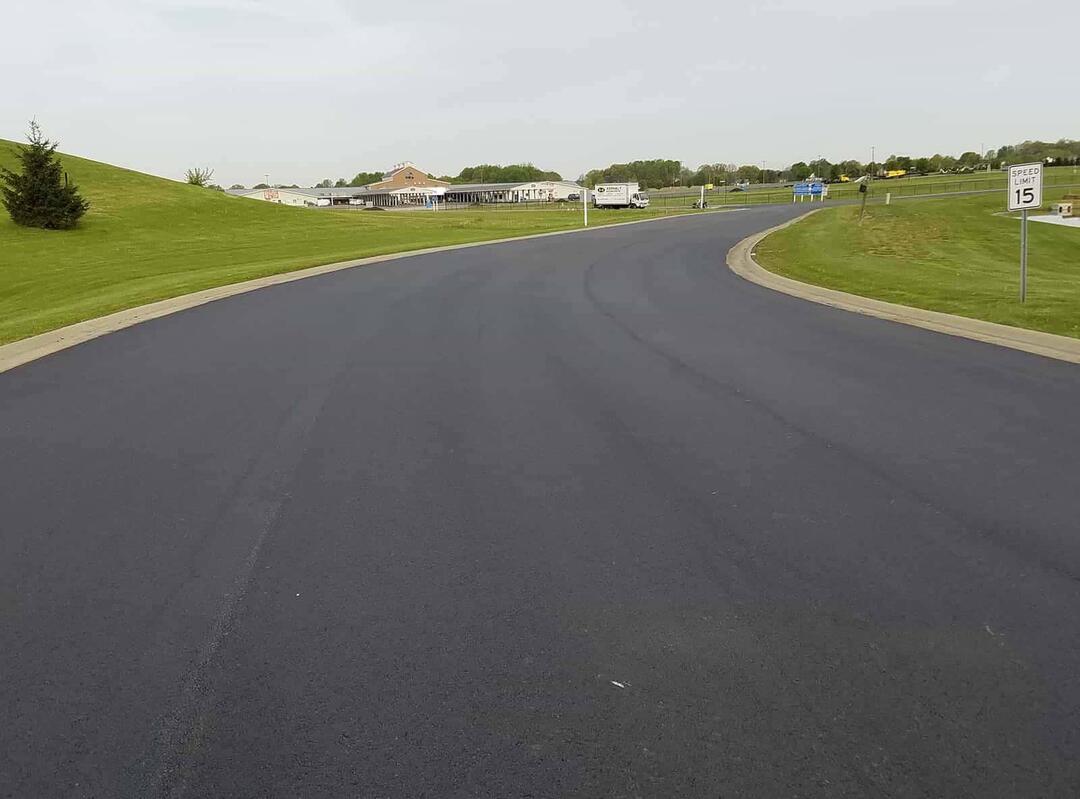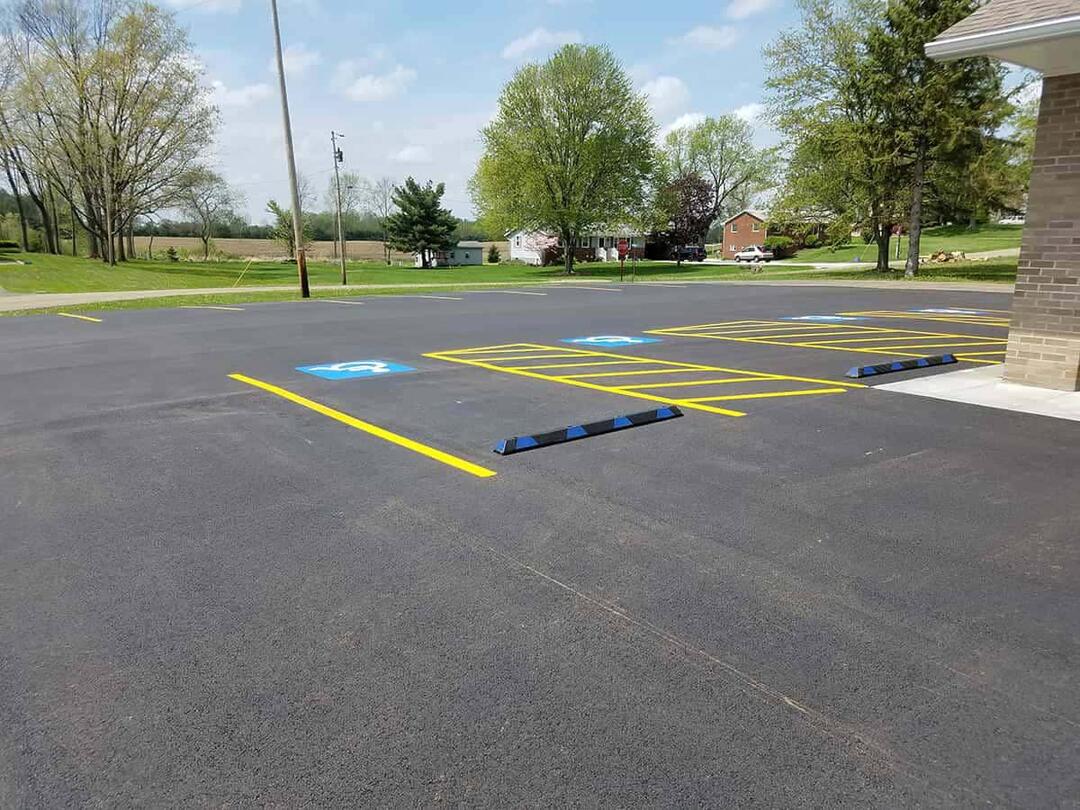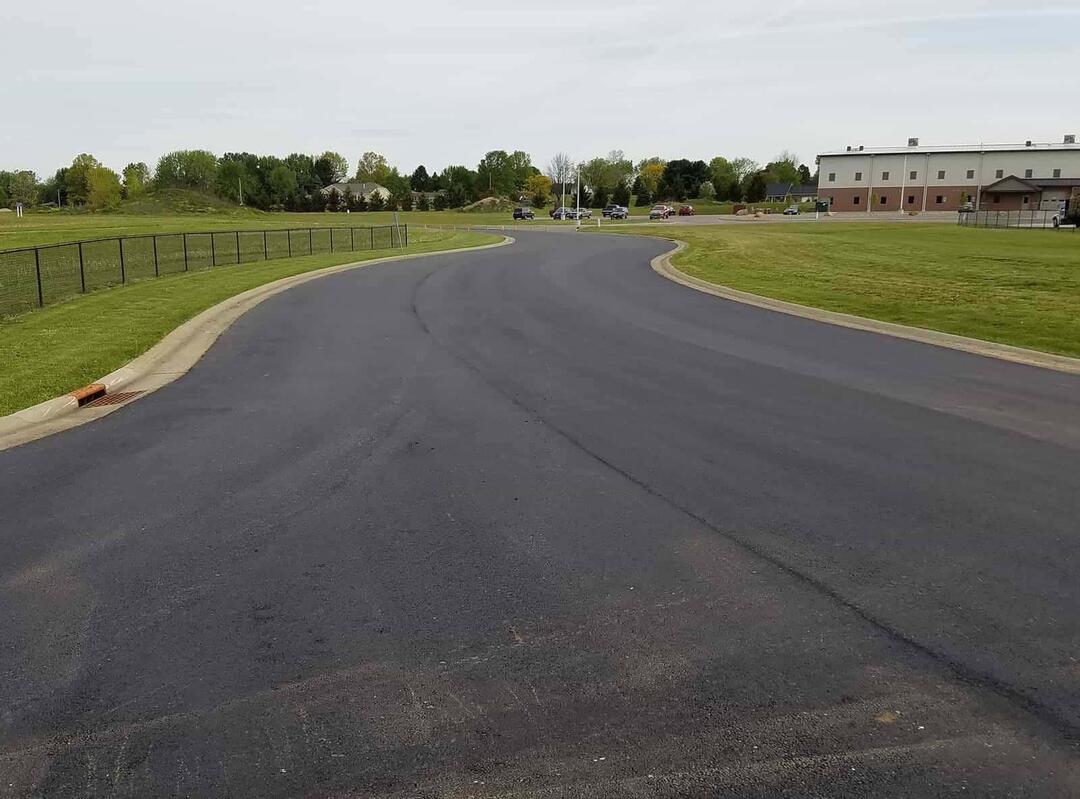Maintenance Tips
for Asphalt DrivewayAsphalt is great choice for budget-conscious people looking for a durable material that is relatively easy to maintain. Asphalt wears well under heavy traffic, and maintenance and small repairs can often be handled with readily available products. Is it best for you? Some common questions are answered below.
My driveway was installed last fall, but it seems soft now that the weather is warm again. Is this normal?
Asphalt generally needs a whole season to fully cure. During cold weather, however, that curing process stops, so if your driveway is installed in the fall, the curing process will have to continue in the spring when temperatures rise again. During this time, you will want to keep heavy and/or sharp objects off your driveway. It also is advisable to avoid parking on the driveway during the hottest part of the day while the asphalt is curing.
Small cracks are appearing on my driveway. Is this just part of the aging process?
Cracks are inevitable as subsoil shifts and your driveway is exposed to freezing and thawing. Filling these cracks in a timely fashion, as well as using a quality sealant will help lengthen the life of your driveway by keeping moisture and water from seeping under the asphalt. If grass or weeds have pushed up through the cracks, treat them or pull them out before filling. There are many products available that make it easy to fill the cracks yourself.
How can I protect the edges of my asphalt driveway?
The edges of an asphalt driveway are usually the first place you see cracking and crumbling because they do not have side supports such as that used when pouring concrete. You can provide some support by adding topsoil around the edges of the driveway and either seeding or laying sod. The growing grass will provide a firm edge and drainage. You can further protect the edges of your driveway be avoiding driving on them.
How often should I seal my asphalt driveway?
The advantage of asphalt is its flexibility, which is maintained by sealing in the oil that is its base. You should seal your new driveway no sooner than one year after installation, but definitely by the third year of life. Thereafter, seal it every two to three years. Follow the directions provided as to dry time and whether to apply a second coat. Always fill cracks before sealing your driveway.
Should I clean my asphalt driveway before sealing?
Using a basic driveway cleaner before sealing is advisable to get the most even application for your sealant. Cleaning the driveway also assures the surface is cool enough to seal. A hot surface with cause the sealant to dry too quickly and create an uneven application.
If my driveway has a lot of cracks, should I consider repaving?
If your driveway has a manageable number of medium cracks that need repaired, or a damaged area that you are able to patch, it is worthwhile to make the repairs and seal upon completion. If your driveway is starting show signs of alligator cracks or large areas that have begun to crumble, you should consider getting the advice of a professional before moving forward on repairs.



